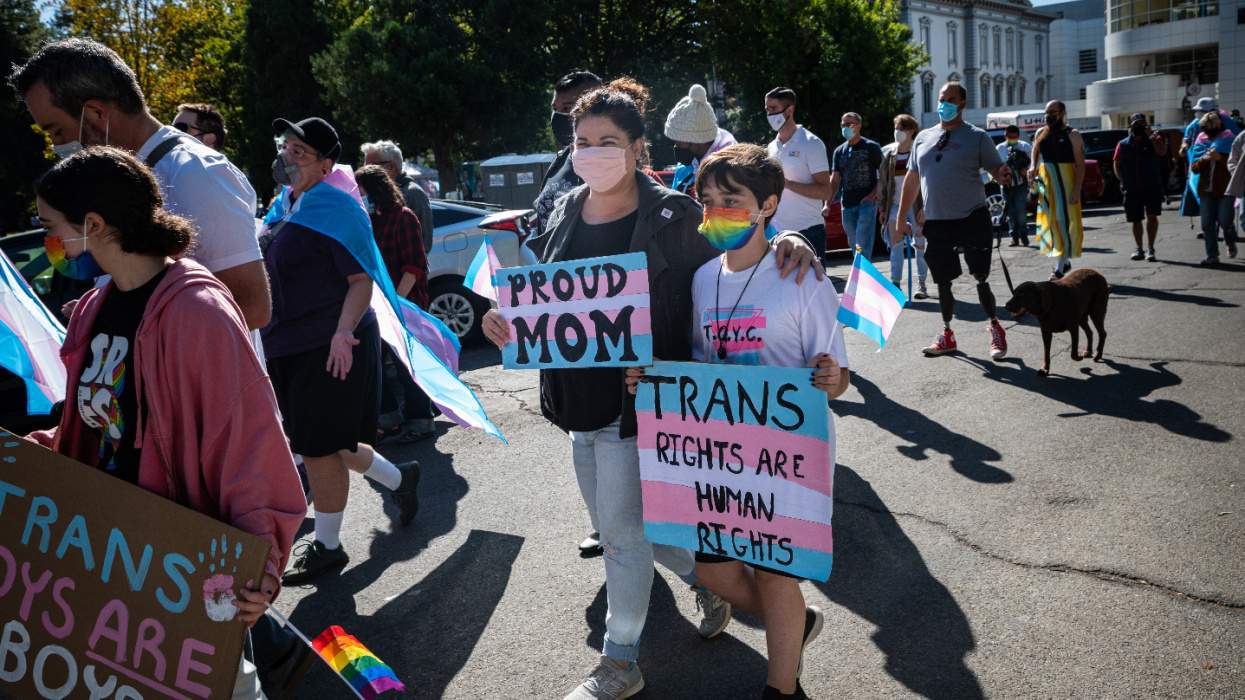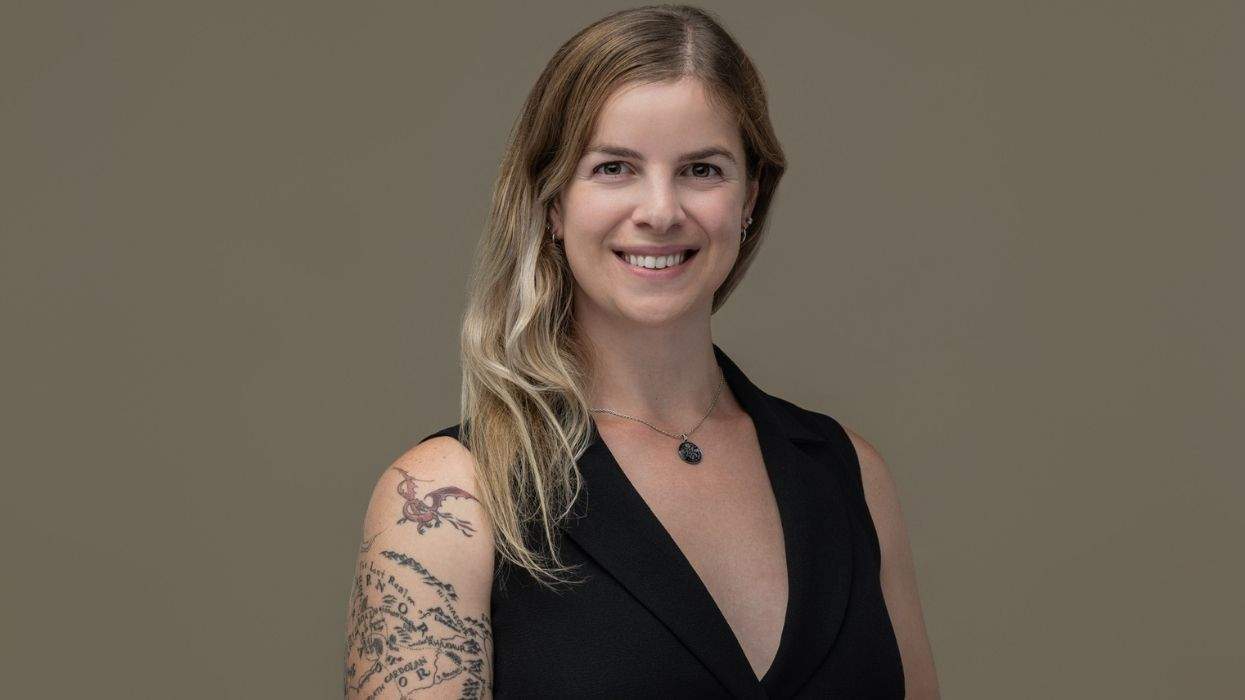RuPaul set off a firestorm of criticism this week after he told The Guardian that he would "probably not" allow a transgender woman who had undergone gender-confirmation surgery to compete on RuPaul's Drag Race.
The remarks are not shocking coming from RuPaul. The world's most famous drag queen has expressed controversial views about the transgender community before -- most notably in 2014, when he defended the show's and his own right to use transphobic slurs.
What is surprising is that this time, RuPaul apologized. Monday, the same day that he stoked more flames for comparing transgender drag performers to doping athletes on Twitter, he published a statement saying he regrets "the hurt I have caused. The trans community are heroes of our shared LGBTQ movement. You are my teachers."
It's a far cry from 2014, when RuPaul, sounding like a talking head on Fox News, called his critics "fringe people who are looking for storylines to strengthen their identity as victims" in a podcast interview with Marc Maron. That season, his show came under fire for an offensive mini-challenge in which contestants were asked to label close-up red-carpet photographs as either "female" or "shemale."
The segment sparked a fierce debate among the LGBT community about transphobic language. In an interview with The Advocate that went viral, Carmen Carrera and Monica Beverly Hillz -- trans alumni of Drag Race -- said the show should "know better" than to air offensive terms. Speaking from experience, they cautioned that words like "tranny," often hurled during hate crimes, are harmful and should be stricken from the vocabulary.
Producers listened to trans critics, apologized, and also removed the questionable "You've Got Shemale" segment, which parodied the "Tyra Mail" bit from America's Next Top Model, from future episodes. RuPaul's response? "Does the word 'tranny' bother me? No. I love the word "tranny,'" he told Maron.
So, what changed between 2014 and 2018?
The question has less to do with the inner workings of RuPaul and more with the swift reaction from fans, media outlets, and past contestants condemning his remarks. Willam Belli, a critic of RuPaul's and no stranger to controversy, summed up the need for an insurrection when he urged other contestants to put aside their fears and criticize a figure who made their careers.
"We work with trans women every night side by side, and for them to be denied the opportunities because of someone's narrow-minded view on what they call 'drag' is fucked," Belli wrote on Instagram. All Stars' BenDeLaCreme, Courtney Act, and Sasha Velour, the reigning Drag Superstar, were among those who pushed back to insist that trans performers are part of drag. Members of the larger trans community also set the record straight. As Transparent's Alexandra Billings wrote in an open Instagram letter, "Dear RuPaul, you did not invent drag. We did."
Overall, there was a greater outpouring of support for transgender drag performers in 2018 from Drag Race fans and cisgender alumni. Why? First, the controversies differ in their stakes; the t word debate is about language, while the current debate deals with the history and definition of drag itself, which has always included trans people.
However, the greater cultural board game has also changed over the past several years in several key ways. For one, Drag Race's audience has grown exponentially larger. The availability of episodes on Netflix and the switch from airing on the LGBT television network Logo to VH1 have allowed the reality show to reach a far larger and international audience. The premiere episode of season 9 drew almost 1 million viewers -- and along with them, big-name advertisers. And it's no longer a gay man's show; even kids love Drag Race now, as evidenced by those who flock annually to the popular RuPaul's Drag Con to catch a glimpse of their favorite contestants. Moreover, RuPaul won a historic Emmy as host of a reality program in 2016, a feat he repeated the following year.
The show is officially mainstream, a state that is reflected in the scope of its media coverage. In 2014, for example, The Advocate was one of very few outlets present on the red carpet for the Los Angeles finale taping -- where this reporter was told by publicists not to ask contestants about the trans controversy. At the 2017 finale, the carpet was crowded with sources like Entertainment Tonight, Variety, and BuzzFeed.
This wider interest has changed the publicity game. For example, representatives for the trans contestant Peppermint had considered The Advocate for release of a statement in response to the RuPaul controversy; the team ended up relasing her remarks to Billboard instead. While the snub stings, it's also a sign of progress. That mainstream outlets, habitually praiseworthy of Drag Race, would be interested in covering the controversy shines greater light on trans issues and also puts more pressure on producers to be inclusive.
And Drag Race isn't the only platform where drag performers can reach a wide audience. While obstacles obviously remain for drag performers, as evidenced by comedian Bianca Del Rio's lack of a talk show, many of the past contestants have gone on to have lucrative careers touring the world, as noted in a New York Times feature, "Is This the Golden Age of Drag?"
The rise of social media is a major factor in this golden age, as Drag Race alumni have become major beneficiaries of it. These performers have accrued massive Facebook, Twitter, and Instagram followings, making them bona fide influencers. This offers new avenues for booking and brand opportunities, which might take the sting out of not being invited back to a reunion show like RuPaul's Drag Race: All Stars. As BenDeLaCreme, with 212,000 Twitter followers, demonstrated when she self-eliminated from All Stars last week -- she felt she did not need to win the show, because she had already won.
"I felt like I had accomplished what I needed to accomplish, and I am proud of that," BenDeLaCreme told The Advocate. She was also among those who spoke out again RuPaul's remarks. "My partner of almost three years is trans, and #bendelachrist help anyone who tries to tell him what he can and can't do. Just sayin,'" she wrote on Twitter. Essentially, the performers today have a greater freedom to speak out against RuPaul, because they have other means to communicate (and make money) that don't rely on their maker.
But it was the outrage of fans, who took RuPaul to task, that is among the greatest evidence of the strides made in transgender visibility. And it's been an eventful four years. Amazon's Transparent premiered in February 2014. Laverne Cox appeared on Time's "transgender tipping point" cover in May 2014. Caitlyn Jenner highlighted her transition on the July 2015 cover of Vanity Fair, before launching a reality show on E! That's not to mention the transgender alums of Drag Race -- among them Carrera, Hillz, Jiggly Caliente, and Peppermint -- who have demonstrated that one can be both transgender and a drag icon. Altogether, these milestones have inspired others to come out and tell their stories and in the process educate America.
In interviews with The Advocate, these four transgender drag performers all attested that advances in transgender visibility have made a difference between how Drag Race fans responded to RuPaul's controversies in 2014 versus 2018.
"I think the difference in reaction simply reflects the wider culture -- there has been a shift and we are making progress which can now be measured much more easily," said Peppermint, who was singled out by RuPaul in the Guardian interview as an example of a trans contestant who could be allowed to participate in Drag Race because she "hadn't really transitioned" at the time of the taping.
"I think our society has shifted in creating a national dialogue on what it means to be transgender, on what medical transitioning can look like, that not all trans people want to change our bodies, and overall the differences in biological sex versus gender identity," said Hillz, who received a torrent of transphobic backlash after speaking out against the t word in 2014. "All of this is great and necessary for people to start to develop more empathy and include us as trans people at the table."
"I personally feel that the fans are growing with the times," Caliente said. "The trans movement is so prevalent that you can't ignore it. Voices of a community that's been marginalized and oppressed in society and its own LGBTQ community are no longer staying silent and on the sidelines."
Carrera, the model who became the face of the backlash against RuPaul in 2014 and a target of angry fans, agreed.
"Trans visibility has made huge strides in the four years between these incidents," Carrera said. "Our stories are starting to be celebrated and shared. But this community still faces so much ridicule and judgment. Many are speaking up when they see it now. We have been disenfranchised as a community for far too long. Trans people and our allies are tired of it."
There is also a generational divide. The fierce criticisms on social media of RuPaul -- a gay icon once considered above reproach -- have come from "some of RuPaul's Drag Race younger fans, often who have gone to college or been able to dive into the specifics about trans identity," said Hillz. She observed that these young fans "sometimes aren't as gentle and forgiving with others who lack a basic understanding on what it means to be trans."
Beyond tweeting, Hillz also reminded Drag Race fans that there is another way to support transgender performers -- your wallet. "If folks really want to support trans women who are doing drag, I'm absolutely available for bookings and prefer Benjamins and above," she said. (Speaking of which, Caliente has a new album and music video with Sharon Needles; Peppermint has an album with Cazwell.)
Caliente also sees the vocal support for transgender women as part of the broader feminism that has swept the United States since Donald Trump, who faces multiple accusations of sexual assault, was elected president in 2016. A greater willingness to hold public figures accountable, as seen in the #MeToo movement, may also be be part of the change, Caliente said.
"There's a change on the horizon and a revolution amongst the rebels. The time is now. #transrevolution," Caliente said. That Trump had so recently issued his own ban on transgender people -- in the military, a move met with bipartisan disgust -- may have also engendered a new understanding of the dangers of exclusion.
And speaking of Trump: While the fan support on Drag Race is heartening, there is still progress to be made, and not just on reality television. Hillz is encouraged by those who would come to the defense of trans drag performers, but she is also wary of losing sight of "the bigger picture" that contains real political and physical dangers to trans people.
"I'd love to see everyone who is making as much noise about whether or not trans women should be on RuPaul's Drag Race be making just as much noise and using all this online energy to speak about and create action on the epidemic, brutal violence toward trans women of color in this country or helping our undocumented LGBTQ communities stay alive," Hillz said.
"There's definitely much more work to be done," Peppermint added. "A lot more, in fact. But the progress we've made in the past several years I hope will energize us. Let's not take our foot off the gas before we cross the finish line."















Charlie Kirk DID say stoning gay people was the 'perfect law' — and these other heinous quotes
These are some of his worst comments about LGBTQ+ people made by Charlie Kirk.